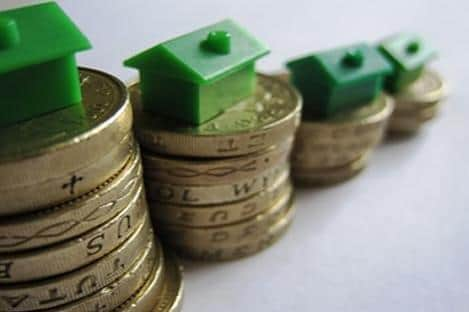Derry house prices decline by -0.3%; experts see cost of living, interest rate impact
and live on Freeview channel 276
Findings from the Quarterly House Price Index show Derry and Strabane and Fermanagh and Omagh were the only two regions to exhibit quarterly price decreases between Q1 and Q2 in 2022.
However, the rate of growth across the nine other council areas is slowing.
Advertisement
Hide AdAdvertisement
Hide AdThe Ulster University research, which has been produced in partnership with the Housing Executive and Progressive Building Society, reveals that despite a further quarter of consecutive house price growth across the north as a whole, rising consumer costs and interest rates are resulting in the continued squeeze on household budgets, and this has begun to impact market activity with a third of estate agents reporting a reduction in new enquiries


"Remaining on par with Q1 was the Derry City and Strabane Local Government District (LGD), with its negligible price decrease of 0.3 per cent resulting in an average house price of £147,261. It joins Fermanagh & Omagh as the only two LGDs which displayed price declines during quarter two, with the latter recording a quarterly change of -1.9 per cent," the report's authors noted.
Across the north as whole quarterly house price growth of 3.6 per cent relative to Q1 2022, and annual growth of 5.6 per cent compared to Q2 2021, was posted. The average price stands at £205,628.
Dr. Michael McCord, Reader in real estate valuation at Ulster University, said: “The housing market this quarter continues to show signs of price growth though at a rate which is diminishing relative to both quarterly and annual prices changes seen since the end of the lockdown periods. The tailwind that has been in the market post-pandemic, buoyed by strong levels of demand, appear to being to be subsiding.
Advertisement
Hide AdAdvertisement
Hide Ad“With strong headwinds ahead in terms of inflationary pressures, the cost of living crisis, interest and mortgage rate increases, and the wider political and economic uncertainty, there is increasing uncertainty regarding the stability future pricing levels.
"The supply crunch seems to have been a key factor propping the housing market up, and this may serve to ‘soften’ any potential correction with the market returning to long-term and more normalised levels of activity into the second half of 2022.”
Ursula McAnulty, Head of Research at NI Housing Executive, which commissions the research, said: “The strong house price growth witnessed over 2021 continues, albeit at a slower rate, into 2022.
Advertisement
Hide AdAdvertisement
Hide Ad"However, there are emerging signs of purchaser confidence falling, including a decline in purchaser inquires. With the Bank of England predicting inflation rising to 10 per cent over 2022, the cost of living crisis looks set to continue to impact households in Northern Ireland.
"The extent to which the lack of supply will temper the effect on house prices remains to be seen, although inevitably there will be more stability in house prices over the remainder of 2022.”
Michael Boyd, Deputy Chief Executive and Finance Director at Progressive, said: “Following a prolonged period of market vibrancy, momentum within Northern Ireland’s housing market has been maintained in Q2 2022 with a quarterly price growth of 3.5 per cent, but with indicators that market activity levels are beginning to cool.
Advertisement
Hide AdAdvertisement
Hide Ad“As anticipated, the influencing factors of inflation and consecutive interest rate rises are expected to curb momentum in the period ahead, with a majority of agents expecting a dip in sales volume. Current market pricing is expected to be maintained, at least in the short-term, through heightened build costs and the continued supply-demand imbalance.
“As we enter the latter half of 2022, the consensus among agents predicts a return to a more stable market dynamic, with fewer sales enquires and purchases expected in the next three months. The longer term forecast of double-digit inflation predicted by the Bank of England for the autumn and the continued household squeeze will likely impact upon transaction levels with a more cautious purchaser landscape.”
Comment Guidelines
National World encourages reader discussion on our stories. User feedback, insights and back-and-forth exchanges add a rich layer of context to reporting. Please review our Community Guidelines before commenting.
